The top 12 metrics for social media managers
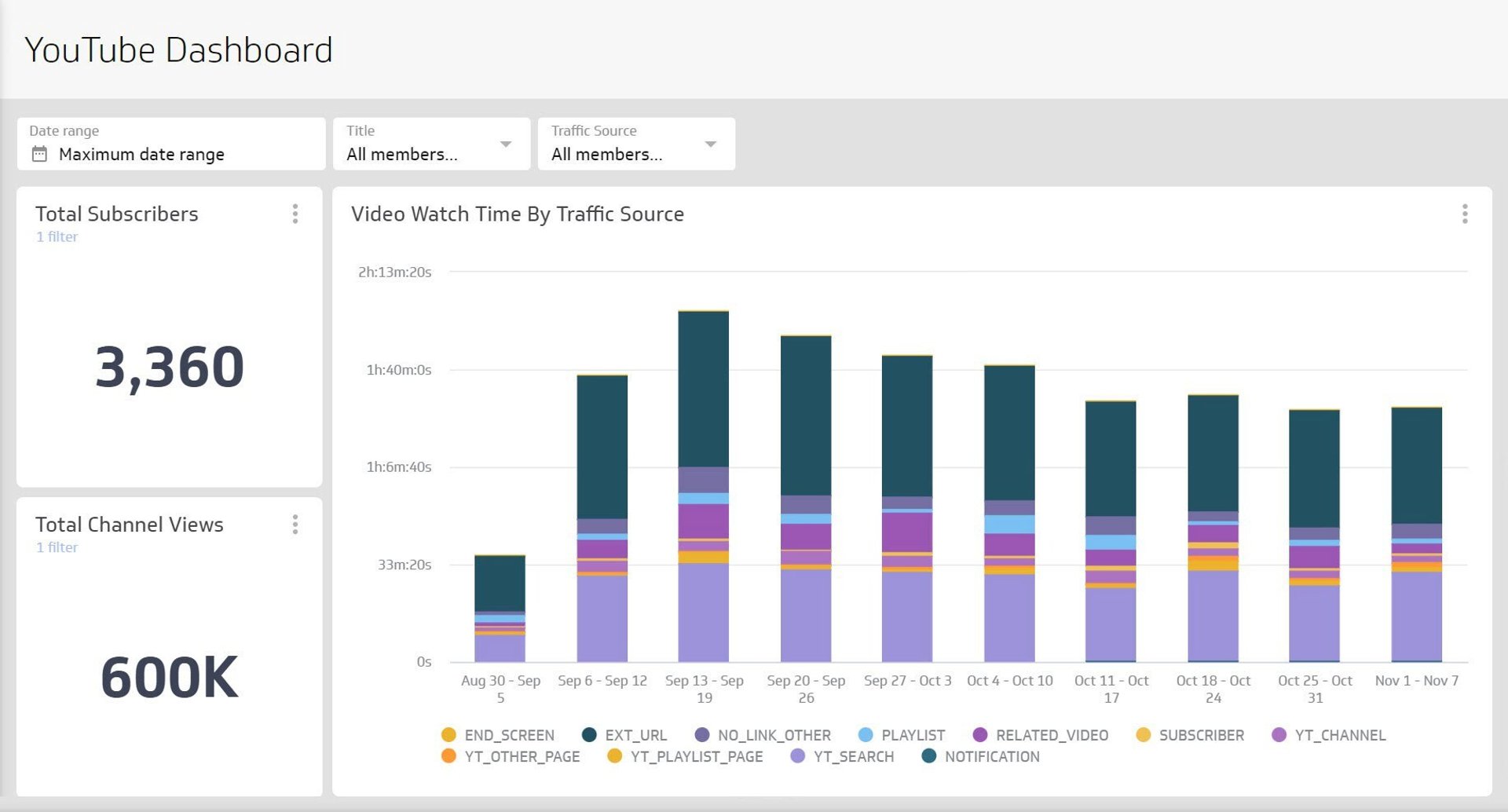
Published 2023-09-27
Summary - Get the top 12 KPIs for social media managers to measure the key metrics that will help you answer the question: "“How are we doing?”
Social media is often the first touchpoint that consumers have with a company. And as social media platforms grow both in variety and user base, so does their importance in your overall marketing strategy.
With this rapid growth, however, it can be difficult for marketing managers to know exactly what to pay attention to and how to go about developing a comprehensive, multi-platform social media strategy.
Developing a fundamental understanding of the key social metrics will equip you, even as new social media platforms rise to prominence and others alter or create their algorithms, to answer the simple question: “How are we doing?”
As you know, answering that question in regard to social media isn't as easy as asking it.
Depending on what exactly it is you are overseeing, the various dimensions of that question could vary. As a social media manager, it’s important to be able to report on performance on a campaign and channel level. Your understanding is critical to delivering the valuable social media insights your team will need to pivot current campaigns or develop future campaigns.
With these 12 hand-picked social media KPIs, you can be confident in your reporting and, more importantly, be on solid footing for developing a winning strategy.
It's worth noting that many of the basic principles can apply to Pinterest, Snapchat, TikTok, or your social media platform of choice.
- Followers
- Facebook Content Engagement
- Facebook Post Likes
- Facebook Page Reach
- Twitter Mentions
- Twitter Retweets
- Instagram Account Impressions
- Instagram Account Reach
- LinkedIn Post Shares
- LinkedIn Post Engagement Rate
- YouTube Video Views
- YouTube Subscribers
Why measure social media metrics?
Social media metrics help you understand campaign performance and overall social strategy performance and give you a birds-eye view into what others are saying about your business.
The impact of social media marketing is sometimes underestimated. So long as you know how to define your organization's KPIs and are properly monitoring their progress, social media platforms can be the source for endless marketing returns.
Without further ado!
The top 12 social media metrics for social media managers
Specially curated and vetted, these KPIs are what most social media marketing managers are tracking to bring their team to the next level.
1. Followers
Followers is applicable across LinkedIn, Facebook, Twitter, and Instagram. The followers metric measures the number of people who have followed your social media page or account. Followers is a great way to quickly gauge the size of your audience on your social platforms. At a glance, social media managers can track their overall growth of their social followings.
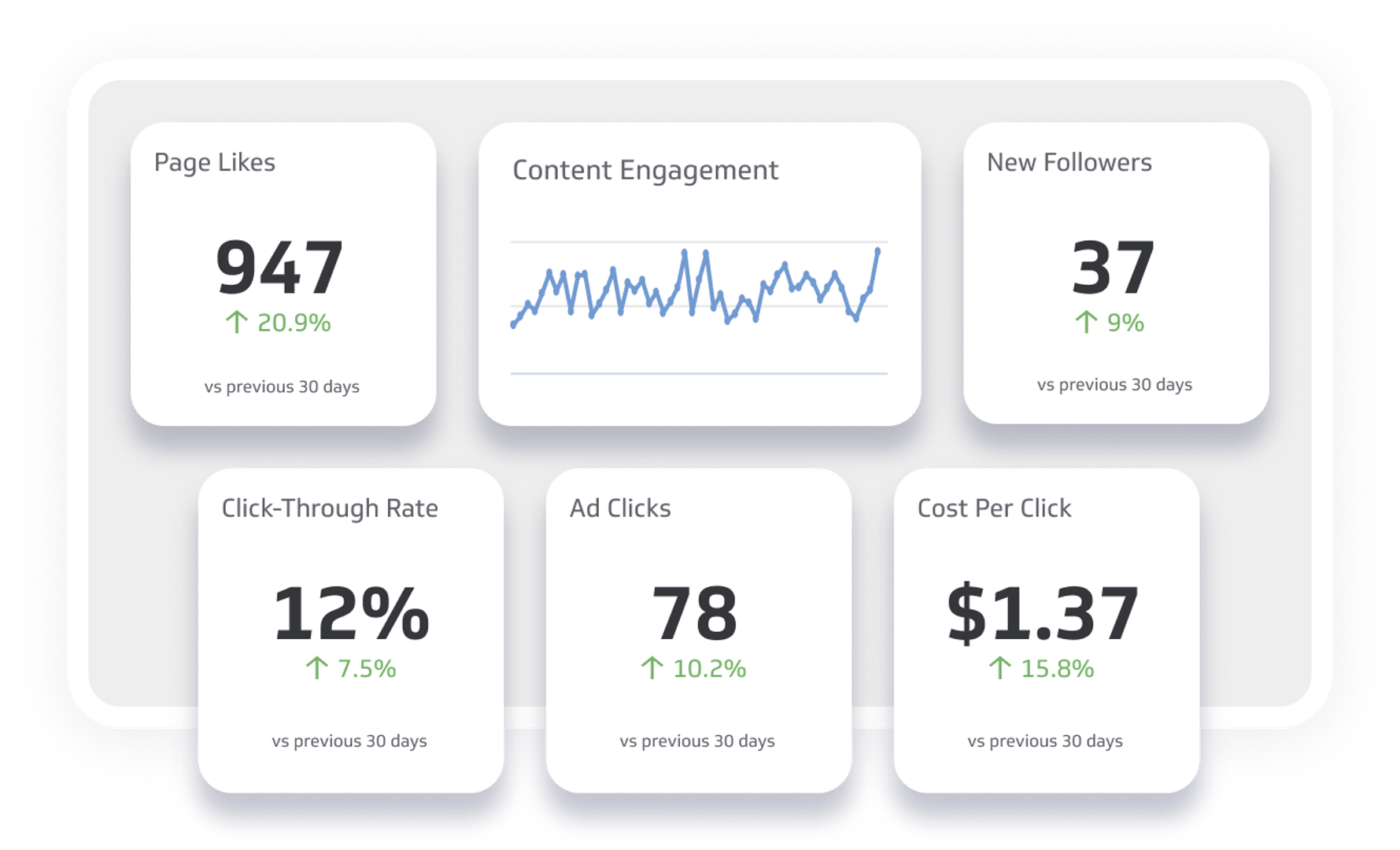
2. Facebook Content Engagement
Content engagement is used to measure all engagements (likes, shares, comments) on your Facebook page. Monitor the number of people interacting with your page content and how they are engaging with it (are they simply liking your post, or are they taking time to write a comment?) This metric is a direct view into the effectiveness of your page content and will give you access to historical trends over a specific time period.
3. Facebook Post Likes
Facebook has 1.93 billion daily active users, and while all of them won’t see your content, it is important to drill down to find which segment of users are interacting with your content. Facebook post likes are a critical engagement metric to gauge your reach and sentiment of your business among Facebook users.
4. Facebook Page Reach
Your Facebook page reach indicates how many unique users you reach with the content you share. The larger your reach, it’s likely that you will have the higher your engagement rate. This can help to form social proof that your business has a positive sentiment with your audience. This social media metric is great for reporting to help understand historical engagement trends and anticipate your growth rate.
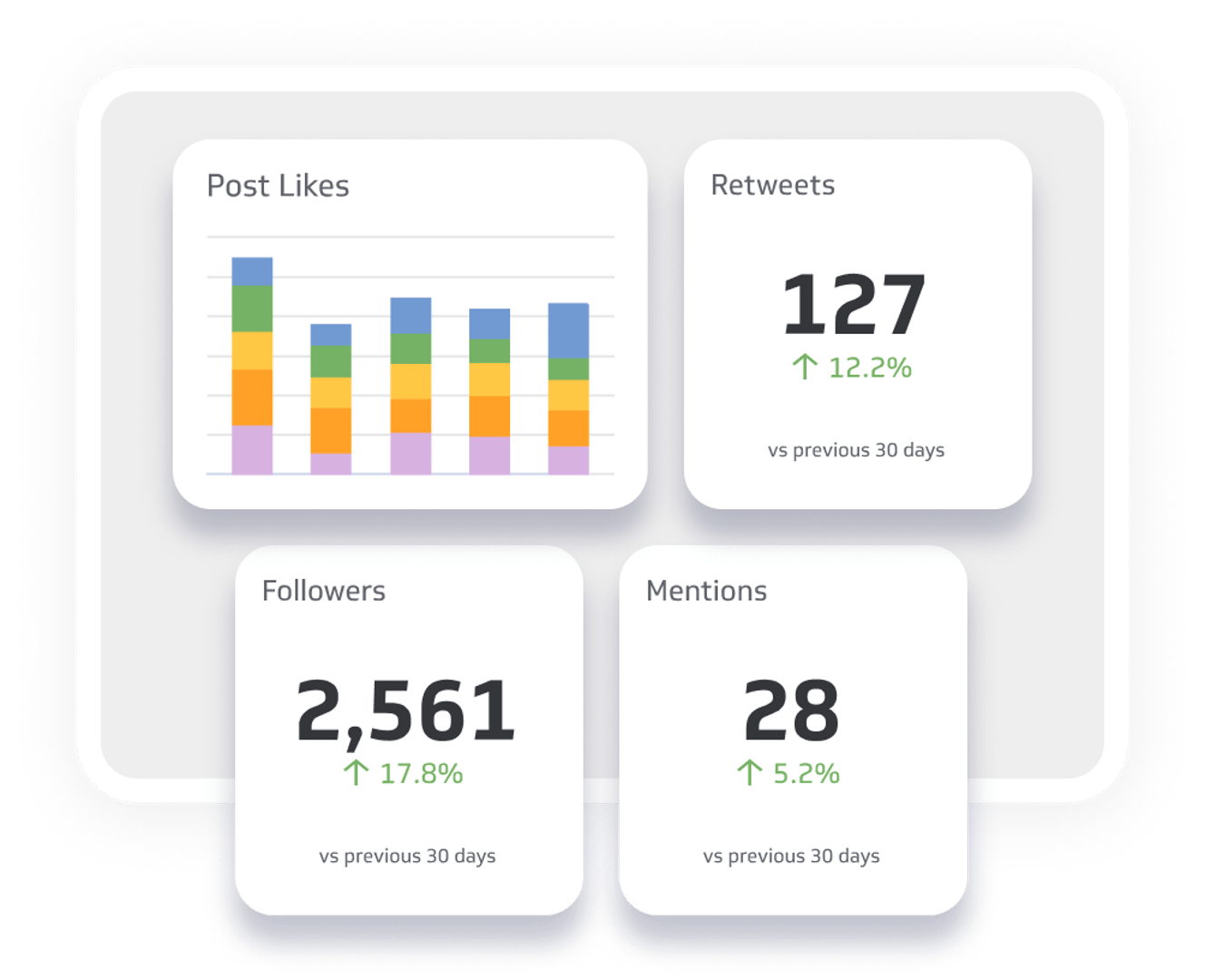
5. Twitter Mentions
Twitter mentions are a real-time metric to track who is interacting with your brand on social media via the @ function. You can also include branded hashtags (for example, we track #MetricStack to see who’s talking about our podcast and newsletter) or plain text (like Metric Stack) under mentions. Mentions allow you to interact with your followers in real-time while also increasing your visibility and improving your customer loyalty.
6. Twitter Retweets
Twitter retweets track the number of people who interact with your content by re-tweeting or re-sharing on their timelines. Retweets increase the reach of your content by appearing on your followers’ timelines, exposing it to their followers. Retweets are an important Twitter metric to track as it generally indicates support for your brand and content and helps to grow your audience by way of your users.
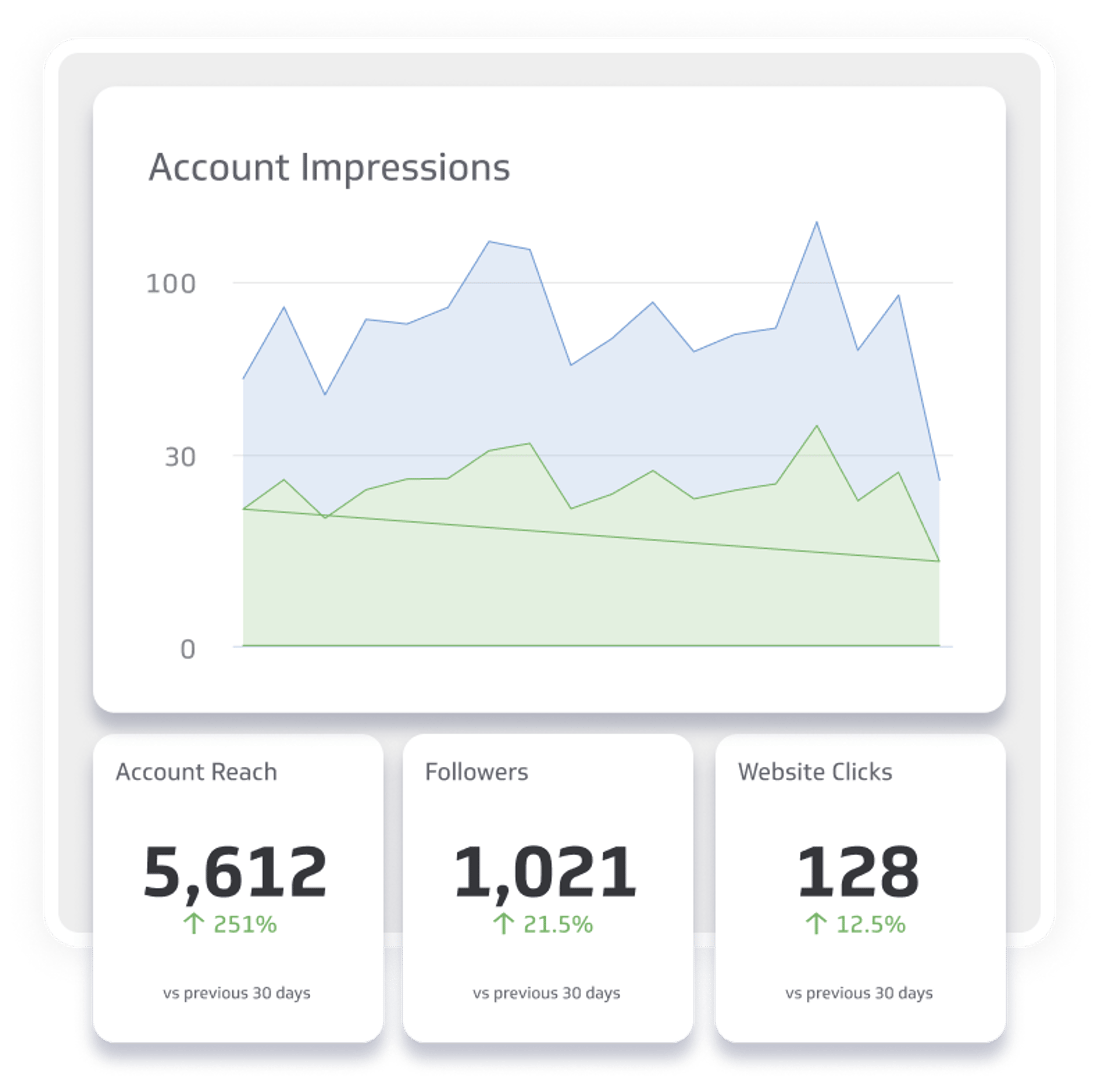
7. Instagram Account Impressions
Account impressions are important for social media managers to get a holistic view of your overall account performance. This metric combines the views of your posts or ads and is an indication of the popularity of your content. To understand the true value of your account’s content, it’s recommended to track account impressions alongside post impressions or account reach.
8. Instagram Account Reach
Instagram account reach is an important metric for social media managers to track as it counts the total number of unique accounts who saw your content. This is an important metric to help understand your growth beyond your followers. Social media managers can measure account reach and compare it to historical data to understand if certain content types help expand beyond your followers.
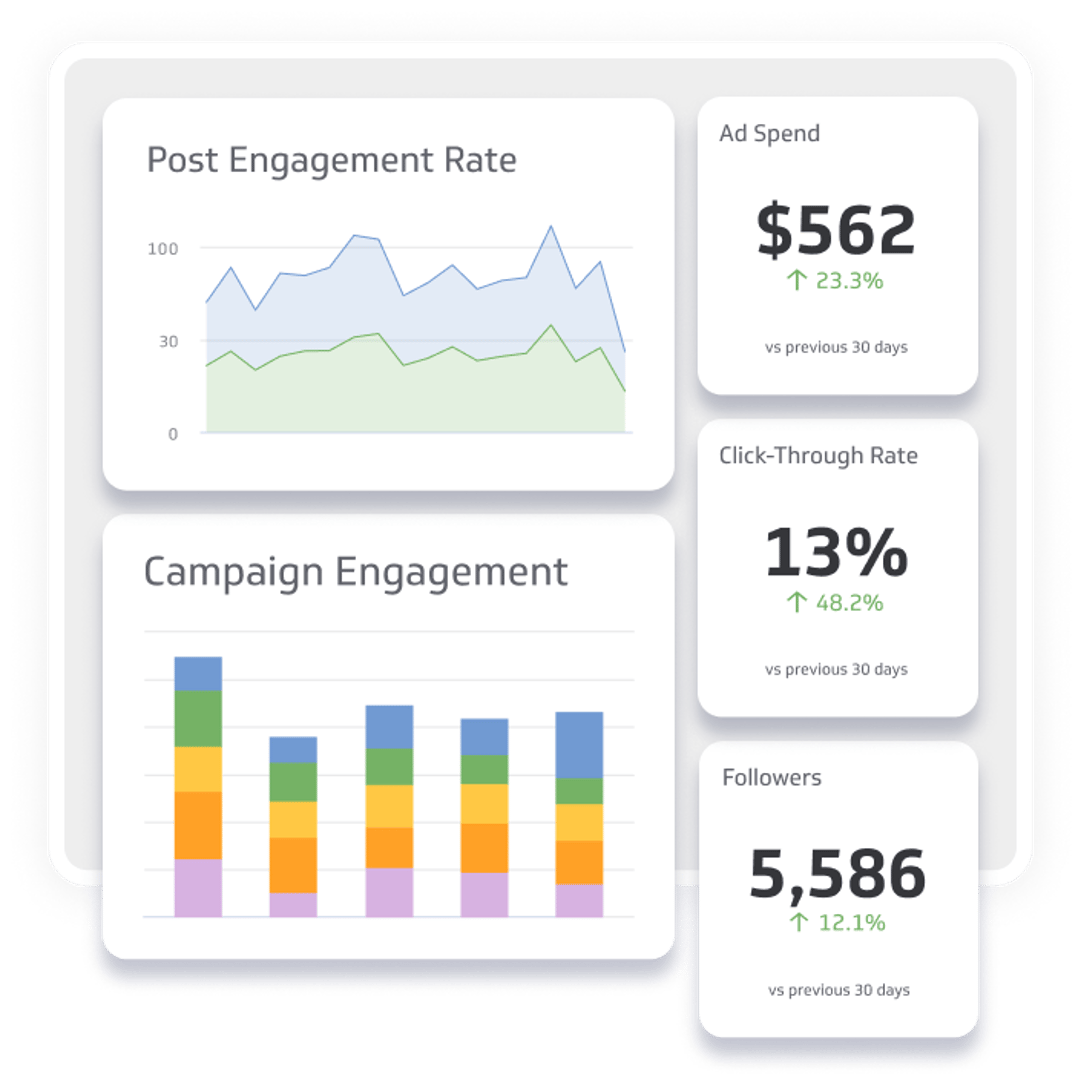
9. LinkedIn Post Shares
Post shares measures thumb-stopping content that your followers want to share. This metric gives you the total count of post shares over a specified time period. Post shares is a metric that measures active engagement versus passive engagement (liking a post). This metric should help you understand what resonates with your followers as valuable content.
10. LinkedIn Post Engagement Rate
Post engagement rate is the ratio of interactions in your post to the number of followers of your LinkedIn page. This metric will capture the engagement rate for likes, impressions, and shares to your followers. Social media managers can track post engagement rate to identify trends and compare performance month-over-month.
Learn more about LinkedIn Analytics
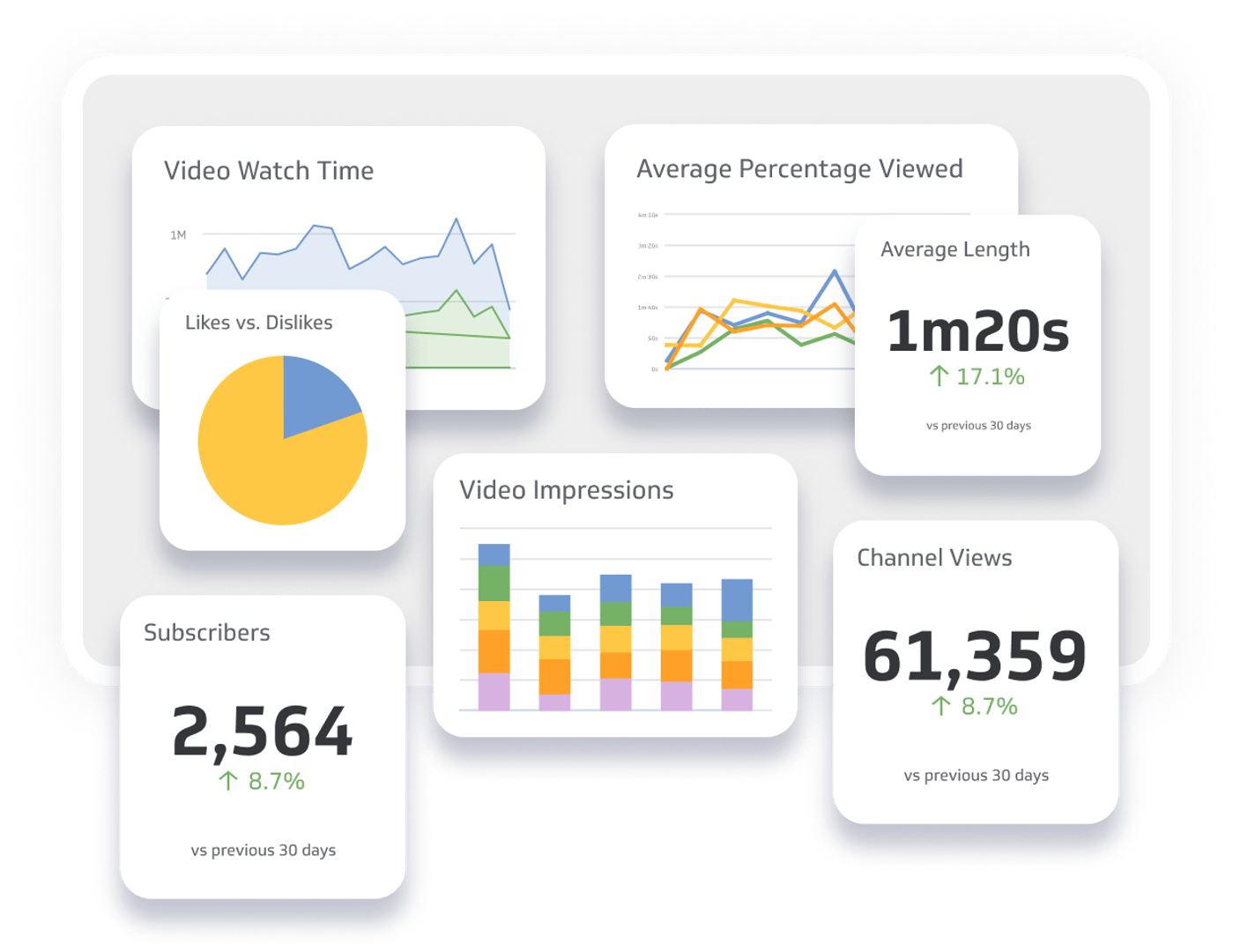
11. YouTube Video Views
Video is quickly becoming a preferred way to consume information. As your social strategy evolves to include more video content, it’s crucial to track your YouTube metrics as part of your overall social strategy. Video views is the total count of views on a specific video. This metric can be tracked alongside related metrics like minutes watched or average view duration.
12. YouTube Subscribers
YouTube refers to followers as subscribers. This metric tracks the total number of users who have subscribed to your YouTube channel. Keep track of your subscribers to understand your audience growth rate and the potential audience that your videos can reach.
Want more social media metrics? Check out these Starter Guides:
- Starter Guide to Facebook Analytics
- Starter Guide to Instagram Analytics
- Starter Guide to LinkedIn Analytics
- Starter Guide to YouTube Analytics
Social media dashboard
Now that you know the metrics, see how you can harness all this power in a single, real-time social media dashboard.
Still want more? Read our blog on How to Establish the Best Social Media KPIs for even more insight on social media metrics!
This post was originally published in May 2017 but has been revamped and updated for accuracy.
Also see
Related Articles

How to Build Google Analytics 4 Dashboards in Klips
By Jonathan Taylor — June 6th, 2023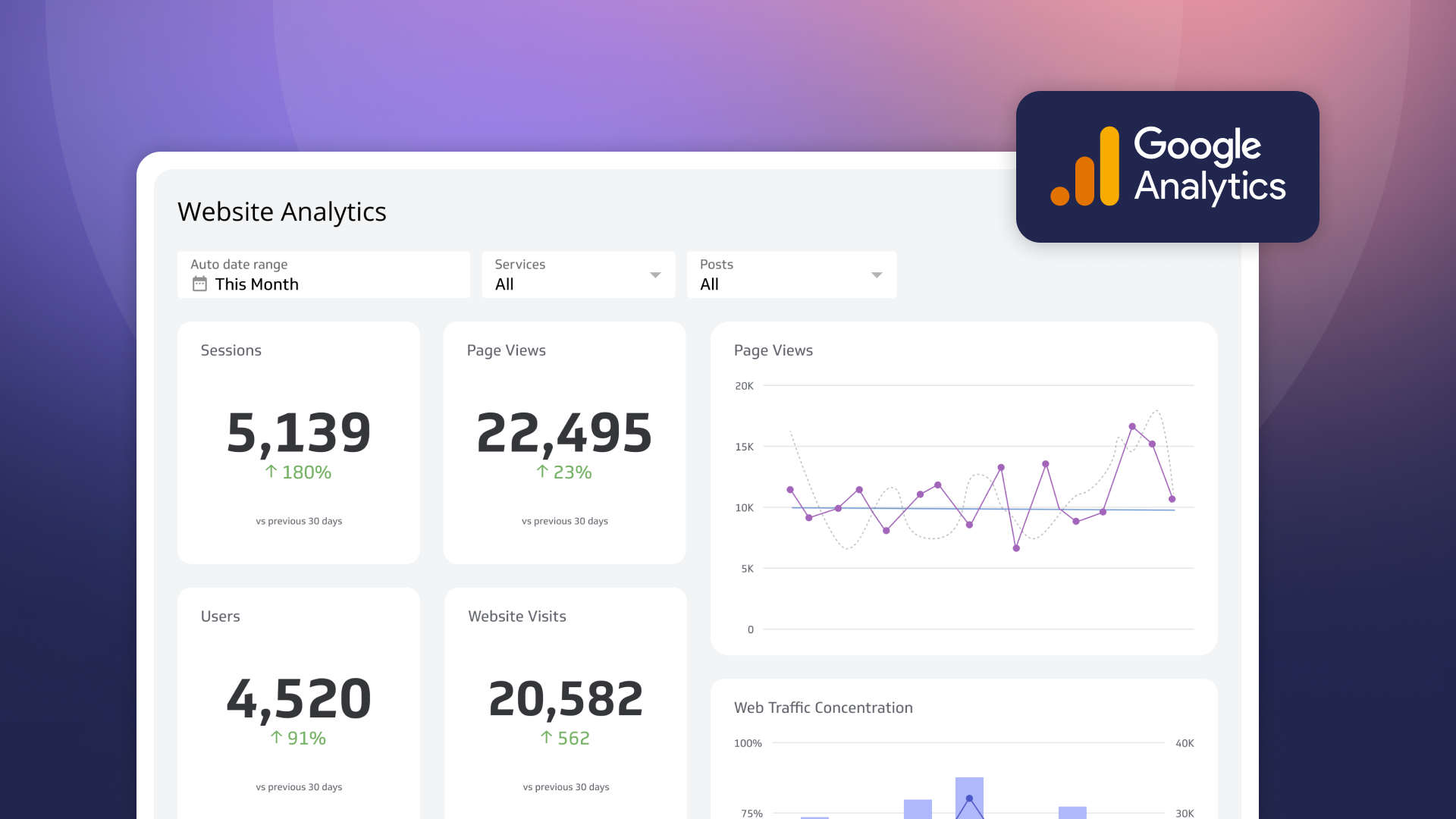
How to use the Google Analytics 4 Query Explorer to export data
By Jonathan Taylor — June 1st, 2023
How to write KPIs in 4 steps
By Emily Hayward — October 3rd, 2022

